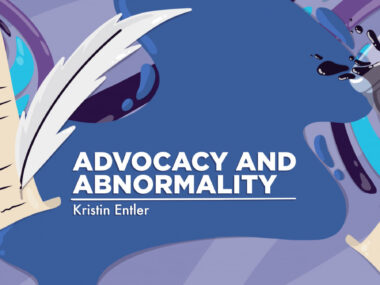Researchers find three linked symptom groups in cystic fibrosis
Symptoms' severity associated with clinical, demographic factors
Written by |

Researchers have identified three groups of symptoms with interconnected severity — respiratory-energy, mood-gastrointestinal irritability, and pain-gastrointestinal abnormal motility — in people with cystic fibrosis (CF).
The severity in each group was associated with clinical and demographic factors, including lung function, treatment with standard CFTR modulators, age, ethnicity, and financial security.
“Findings from this study may prompt clinicians to consider co-occurring symptoms, and ensure their assessment and management is tailored to the unique experiences of [people with CF],” the researchers wrote. The study, “Symptom factors and their clinical correlates among adults with cystic fibrosis,” was published in the Journal of Cystic Fibrosis.
CF is caused by mutations in the CFTR gene, which result in a missing or nonworking CFTR protein that normally regulates the movement of water and salt molecules across cell membranes. This causes thick, sticky mucus to build up in the body’s organs, including the lungs, pancreas, and digestive tract, leading to symptoms.
CFTR modulators can significantly alter the disease course, but people with CF may have co-occurring symptoms that may be interconnected and collectively reduce their quality of life.
To further describe groups of correlated symptoms in people with CF, a team led by researchers at Emory University in Atlanta analyzed data from InSPIRe:CF (ISRCTN53323164), a multicenter clinical trial on CF care in the U.S. A total of 262 adults (median age, 33) were included. Most were white (90%) and women (58%), and 78% were on a CFTR modulator. Their most common symptoms were lack of energy (74%) and cough (73%).
The effects of ‘interconnected’ symptoms
Symptom groups, or factors, were identified using the Memorial Symptom Assessment Scale-CF (MSAS-CF). This measure is designed to evaluate the symptom burden among people with CF by capturing those that affect their daily lives and quality of life. It evaluates symptoms based on their presence or occurrence, frequency, severity, and associated distress.
The researchers identified three symptom factors based on the severity of 18 symptoms, using exploratory factor analysis, a statistical method that groups highly correlated symptoms into factors when researchers have no prior hypothesis about how they will cluster. The identified factors included respiratory-energy, mood-gastrointestinal irritability, and pain-gastrointestinal dysmotility, or difficulties in gastrointestinal tract movements. For each group, the patients were classified as having either low- or high-symptom severity.
The respiratory-energy symptom factor included cough, shortness of breath, lack of energy, drowsiness, and dry mouth. Older age and having more pulmonary exacerbations, that is, acute lung symptom worsening, were significantly associated with higher odds of having more severe symptoms in this factor, while being on CFTR modulators was tied to a lower chance of severe symptoms.
The pain-gastrointestinal dysmotility factor included pain, low appetite, nausea, weight loss, constipation, and sleeping problems. In this factor, being Latino/Hispanic ethnicity, worse lung function, and CFTR modulator treatment were each significantly associated with lower odds of severe symptoms, but more pulmonary exacerbations were linked to an increased probability.
“Our findings … suggest that fatigue in CF is more closely associated with respiratory symptoms than psychological symptoms, though sleep disturbances were more closely associated with mood disturbances than respiratory symptoms in our study,” the researchers wrote.
The mood-gastrointestinal irritability symptom factor included feeling worried, sad, or nervous, or having concentration problems, diarrhea, and bloating.
“The strong correlation between psychological symptoms and diarrhea in the mood-gastrointestinal irritability factor highlights the importance of the brain-gut axis,” they wrote. Here, worse lung function, CF-related liver disease, and being employed were each significantly linked to lower chances of severe symptoms. Using CFTR modulators didn’t influence severity within this factor.
Financial insecurity was tied to higher symptom severity across all factors, serving “as a reminder that social determinants of health and the symptom experience are inextricably linked, and need to be addressed simultaneously,” the researchers wrote. “The identification of three distinct symptom factors offers potential targets for future studies to better understand the mechanism underlying these factors and underscores the need for a multidimensional approach to symptom management and assessment.”







